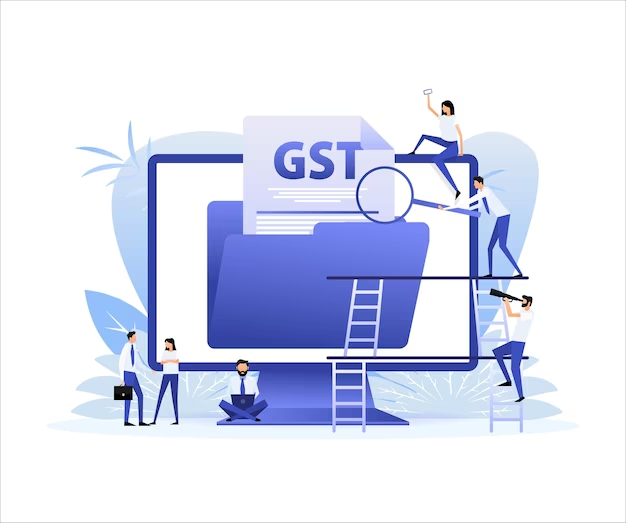Learn about key factors to consider before registration for GST. Find out about the thresholds for turnover as well as compliance requirements. The implementation of Goods and Services Tax (GST) in Pakistan has dramatically changed the tax landscape of the country. In the wake of its implementation, companies must register for GST to ensure conformity with laws, while also dealing with the various complexities. Before beginning this process of registration, it’s vital that businesses understand the most important factors that could influence their registration and compliance. This article will dive into the key considerations that companies in Pakistan must keep in mind prior to making a decision to register for GST and also explore the significance of consultancy services such as Embrandmaker Consultants in this process.
Understanding GST Registration in Pakistan:
GST registration in Pakistan is required for companies who meet certain requirements, which include thresholds for turnover. The process of registration involves giving accurate details for authorities at the Federal Board of Revenue (FBR) and getting an specific registration code. Before beginning the process of registration, companies must consider a variety of factors to ensure smooth transition to the GST process.
Key Factors to Consider Before Registration for GST :
- Business Structure and Turnover: The business structure regardless of whether you’re a partnership, sole proprietorship or a corporation is a major factor to determine GST filing requirements. Furthermore, knowing the amount of the turnover of your business is vital in that businesses that exceed the threshold established by the FBR must be registered for GST. Embrandmaker Consultants can assist in the evaluation of your income and determine whether it is required to register.
- Exempt and Taxable Supplies: Knowing the type of your supply is vital in determining the tax liability of GST. While certain supplies are tax-deductible under GST however, certain products and services are exempt or tax-free. Embrandmaker Consultants provide information on the classification of supply to ensure accurate calculation of tax obligations.
- Impact on Cash Flow and Pricing: GST implementation could impact pricing strategies as well as the management of cash flow. Companies must consider the way GST can affect their pricing structures as well as cash flow dynamic. Embrandmaker Consultants can provide advice in optimizing pricing strategies as well as controlling cash flow during GST implementation.
- Compliance Requirements: Prior to registering for GST companies must educate themselves with the requirements for compliance set by the FBR. This involves timely filing of tax returns as well as maintaining records and adhering to the standards for invoicing. Embrandmaker Consultants specialize in ensuring the compliance of GST regulations, while minimizing the chance of penalties and fines.
- Input Tax Credit (ITC) Mechanism: Understanding the mechanism behind Input Tax Credit is crucial for companies to be able to claim GST credit on inputs. Embrandmaker Consultants are able to assist in maximising ITC claims while also making sure that you are in the compliance of documents and reporting obligations.
- Transitional Provisions: Companies that are transitioning to GST GST regime could benefit from some transitional provisions, like carrying forward of balances in input tax. Embrandmaker Consultants can assist in the smooth transition of companies to GST, using available transitional provisions to reduce tax liability.
- Effects on Supply Chain: GST has the potential to significantly affect the supply chain’s dynamics, especially with regards to logistics, warehousing, as well as distribution. Businesses must evaluate the effects on the impact of GST to their business operations, and make adjustments to minimize any interruptions. Embrandmaker Consultants can assist with the optimization of supply chain operations in light of GST implementation.
- Technology Readiness: Using technologically-based solutions is crucial to making sure that you are in compliance with GST regulations. Businesses must assess their technology capabilities and implement appropriate solutions for GST compliance. Embrandmaker Consultants are able to recommend the implementation of GST-compliant computer software that is tailored to the specific needs of your business.
Role of Embrandmaker Consultants:
Embrandmaker Consultants is a top consulting firm that specializes on GST service registration as well as compliance in Pakistan. With an experienced team of experts, Embrandmaker offers comprehensive support for businesses who want to understand the complex world involved in GST Registration and Compliance.
Conclusion:
Navigating through the maze involved in GST filing and compliance Pakistan requires careful examination of a range of aspects. From determining thresholds for turnover to understanding the requirements for compliance companies require a comprehensive approach in order to make a smooth transition into an efficient transition to the GST regime. Embrandmaker Consultants play a pivotal role in helping businesses navigate how to register, offering continuous compliance assistance, as well as using technology to simplify GST processes. Through partnering with consulting firms such as Embrandmaker firms, companies are able to navigate the GST environment with confidence and be sure to comply while increasing the efficiency of their taxes.

